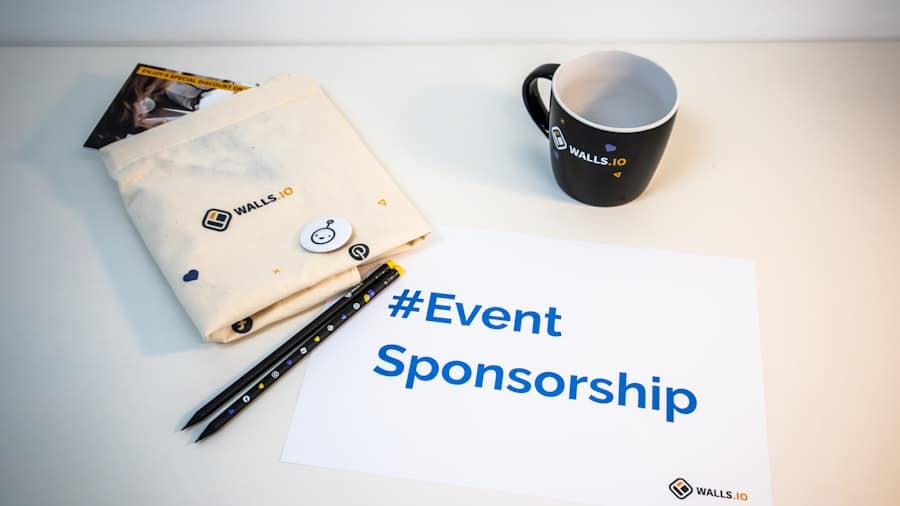The landscape of competitive gaming has undergone a seismic shift over the past decade, transitioning from a niche hobby to a global phenomenon. This transformation has been fueled by the rise of esports, where professional gamers compete in organized tournaments for substantial prizes and recognition. As viewership numbers soared, attracting millions of fans worldwide, brands began to take notice.
The influx of sponsorships into the esports arena has been nothing short of remarkable, with companies eager to align themselves with this burgeoning market.
The growth of esports sponsorships can be attributed to several factors, including the increasing popularity of streaming platforms like Twitch and YouTube Gaming.
These platforms have not only provided a stage for gamers to showcase their skills but have also created a new avenue for brands to engage with consumers. Sponsorship deals often include a variety of promotional activities, from branded content and product placements to event sponsorships and influencer partnerships. As esports continues to evolve, the nature of these sponsorships is also changing, with brands seeking innovative ways to integrate themselves into the gaming experience while maintaining authenticity and relevance.
Key Takeaways
- Esports sponsorships have seen a significant rise in recent years, with brands from various industries investing in the industry.
- Esports sponsorships have had a major impact on revenue, with the industry expected to generate over billion in revenue by 2021.
- Esports sponsorships play a crucial role in player development, providing financial support and resources for training and competition.
- Esports sponsorships have a significant influence on brand awareness, allowing companies to reach a global audience of passionate and engaged fans.
- Esports sponsorships are evolving in traditional sports, with more crossover partnerships and collaborations between the two industries.
The Impact of Esports Sponsorships on Revenue
Esports sponsorships have become a significant revenue stream for teams, players, and event organizers alike. According to industry reports, the global esports market is projected to surpass $1.5 billion by 2023, with sponsorships accounting for a substantial portion of that revenue. This influx of capital has allowed teams to invest in better training facilities, coaching staff, and player salaries, creating a more professional environment that mirrors traditional sports organizations.
For instance, organizations like Team Liquid and Cloud9 have secured multi-million dollar sponsorship deals that enable them to compete at the highest levels while providing their players with the resources they need to succeed. Moreover, the financial impact of sponsorships extends beyond just the teams; it also benefits the entire ecosystem surrounding esports. Event organizers can offer larger prize pools and more elaborate productions, enhancing the overall experience for both players and fans.
For example, the League of Legends World Championship has seen its prize pool grow exponentially over the years, thanks in part to sponsorship deals with major brands like Mastercard and Louis Vuitton. These partnerships not only elevate the prestige of the event but also contribute to the growth of the esports industry as a whole, creating a virtuous cycle of investment and return.
The Role of Esports Sponsorships in Player Development

Sponsorships play a crucial role in the development of esports players, providing them with financial support and resources that can significantly enhance their careers. Many professional gamers rely on sponsorship deals to cover their living expenses, allowing them to focus entirely on honing their skills and competing at high levels. This financial backing can be particularly important for younger players who may not have the means to support themselves while pursuing a career in gaming.
For instance, organizations like FaZe Clan and TSM not only provide salaries but also invest in player development programs that include coaching, mental health support, and training facilities. In addition to financial support, sponsorships often come with access to valuable networking opportunities within the industry. Players can connect with other professionals, attend industry events, and gain insights into the business side of esports through their sponsors.
This exposure can be instrumental in helping players navigate their careers and make informed decisions about their futures. Furthermore, as brands increasingly seek to promote diversity and inclusion within esports, sponsorships can help elevate underrepresented voices in gaming, fostering a more inclusive environment for all players.
The Influence of Esports Sponsorships on Brand Awareness
Esports sponsorships have proven to be an effective way for brands to enhance their visibility and connect with a demographic that is often difficult to reach through traditional advertising channels. The unique nature of esports allows brands to engage with consumers in a more interactive and immersive manner. For example, brands can sponsor in-game items or characters, creating a direct association between their products and the gaming experience.
This type of integration not only increases brand awareness but also fosters a sense of loyalty among gamers who appreciate brands that support their passion. Moreover, the social media presence of esports teams and players amplifies the reach of sponsorships. When a popular streamer or professional player endorses a product or brand during a live stream or on social media platforms like Twitter and Instagram, it can lead to immediate spikes in brand engagement.
For instance, when Tyler “Ninja” Blevins partnered with Red Bull, his endorsement resulted in significant increases in brand recognition among his millions of followers. This kind of authentic promotion resonates deeply with fans who trust their favorite players’ opinions, making esports sponsorships an invaluable tool for building brand loyalty.
The Evolution of Esports Sponsorships in Traditional Sports
The intersection between traditional sports and esports has become increasingly pronounced as both industries recognize the potential for collaboration. Major sports leagues such as the NBA and NFL have begun investing in esports teams and tournaments, blurring the lines between these two worlds. For example, NBA teams like the Golden State Warriors have launched their own esports franchises, allowing them to tap into the growing gaming audience while maintaining their traditional fan base.
This evolution has led to a new wave of sponsorship opportunities that cater to both esports enthusiasts and traditional sports fans. Furthermore, traditional brands are beginning to see the value in diversifying their sponsorship portfolios by including esports partnerships alongside their existing sports sponsorships. Companies like Coca-Cola and Nike have expanded their marketing strategies to encompass both realms, recognizing that younger consumers are increasingly gravitating towards gaming as a primary form of entertainment.
This shift has prompted traditional sports organizations to explore innovative ways to engage with gamers, such as hosting crossover events or creating hybrid competitions that blend elements from both industries.
The Future of Esports Sponsorships

As esports continues to grow at an unprecedented rate, the future of sponsorships within this space appears bright yet complex. With advancements in technology such as virtual reality (VR) and augmented reality (AR), brands will have new opportunities to create immersive experiences that engage fans on a deeper level. For instance, imagine a scenario where fans can virtually attend an esports tournament from their homes while interacting with sponsors through branded VR experiences.
This level of engagement could redefine how brands connect with consumers in the gaming space. Additionally, as data analytics becomes more sophisticated, brands will be able to tailor their sponsorship strategies based on consumer behavior and preferences. By leveraging insights from viewership data and social media interactions, companies can create targeted campaigns that resonate with specific segments of the gaming audience.
This data-driven approach will not only enhance the effectiveness of sponsorships but also foster stronger relationships between brands and gamers.
The Challenges and Opportunities of Esports Sponsorships
Despite the promising landscape for esports sponsorships, challenges remain that brands must navigate carefully. One significant hurdle is the perception that esports lacks legitimacy compared to traditional sports. While viewership numbers rival those of established sports leagues, some brands may still hesitate to invest due to lingering stereotypes about gaming culture.
Overcoming this perception requires ongoing education about the professionalism and organization within esports, as well as showcasing successful case studies that highlight the positive impact of sponsorships. On the other hand, opportunities abound for brands willing to embrace the unique aspects of esports culture. Engaging with gamers authentically is crucial; brands must understand the community’s values and preferences rather than relying solely on traditional marketing tactics.
Collaborating with popular streamers or influencers who resonate with the gaming audience can help bridge this gap. Additionally, creating content that aligns with gamers’ interests—such as behind-the-scenes looks at tournaments or player interviews—can foster genuine connections between brands and consumers.
The Importance of Authenticity in Esports Sponsorships
In an industry where authenticity is paramount, brands must approach esports sponsorships with sincerity and respect for the gaming community. Gamers are discerning consumers who can quickly identify insincere marketing tactics or attempts at exploitation. Therefore, successful sponsorships hinge on a brand’s ability to integrate itself into the gaming culture genuinely.
This means understanding gamers’ motivations and interests while aligning brand messaging accordingly. For example, when Riot Games partnered with Louis Vuitton for League of Legends merchandise, it was not merely a superficial collaboration; it involved thoughtful design elements that resonated with both fashion enthusiasts and gamers alike. By respecting the culture and values inherent in esports, brands can cultivate trust among consumers who appreciate authenticity over mere promotional gimmicks.
Ultimately, fostering genuine relationships within the gaming community will be key to unlocking long-term success in esports sponsorships as this dynamic industry continues to evolve.
In the rapidly evolving world of esports, sponsorships play a crucial role in driving growth and innovation. A related article that delves into technological advancements, which are also pivotal in this sector, is the exploration of new possibilities with cutting-edge devices. For instance, the Samsung Galaxy Chromebook 4 offers insights into how modern technology can enhance user experience and performance, much like how strategic sponsorships can elevate esports teams and events. This synergy between technology and sponsorships is essential for the continued expansion and success of the esports industry.
FAQs
What are esports sponsorships?
Esports sponsorships are partnerships between esports organizations, teams, or individual players and brands or companies. These partnerships involve the promotion of a brand’s products or services through various marketing activities within the esports industry.
How do esports sponsorships fuel growth in the industry?
Esports sponsorships fuel growth in the industry by providing financial support to teams and players, which allows them to invest in training, equipment, and infrastructure. Additionally, sponsorships help increase the visibility and legitimacy of esports, attracting more fans and potential investors to the industry.
What types of companies typically sponsor esports teams or players?
A wide range of companies sponsor esports teams or players, including technology brands, energy drink companies, apparel companies, and gaming hardware manufacturers. Additionally, non-endemic brands from industries such as automotive, food and beverage, and financial services are increasingly entering the esports sponsorship space.
What benefits do sponsors receive from esports partnerships?
Sponsors receive various benefits from esports partnerships, including exposure to a highly engaged and tech-savvy audience, brand visibility through in-game advertising and event sponsorships, and the opportunity to align their brand with the rapidly growing esports industry.
How do esports sponsorships impact the overall growth of the esports industry?
Esports sponsorships play a significant role in the overall growth of the industry by providing the financial resources needed for infrastructure development, player salaries, and event production. Additionally, sponsorships help legitimize esports as a mainstream form of entertainment, attracting more investment and interest from traditional sports organizations and media companies.

